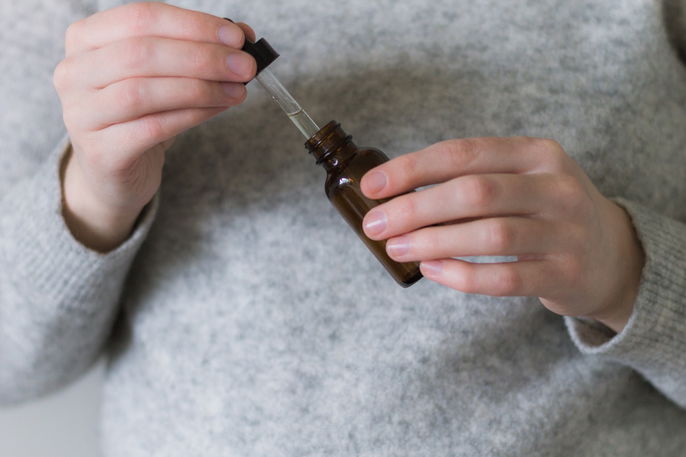Learning how to make a tincture is a simple way to prepare concentrated herbal extracts that preserve the active compounds of medicinal plants. These natural remedies combine dried or fresh herbs with alcohol, allowing them to maintain their therapeutic properties for long periods.
Tinctures can be made at home using ingredients like grain alcohol, fresh or dried herbs, and a dark glass jar. They are often used to help relieve conditions such as insomnia, anxiety, indigestion, or constipation, depending on the plant used.
Understanding how to make a tincture also includes knowing safe alternatives to alcohol, like vegetable glycerin or wine, and how to store the preparation correctly. Because tinctures are potent, they should be used as directed by a doctor or herbal specialist to ensure safety and effectiveness.

Steps to make a tincture
To make a tincture you need 1 L of grain alcohol (70 to 90%) and 1 dark bottle with a lid. The steps to make a tincture are:
- Sterilize a glass jar by washing it well with hot water and soap, let it dry and put it in the oven for 15 to 20 minutes.
- To use dried plants, the plant must be dried in the shade or in an oven at a temperature of up to 35ºC (or 95ºF).
- To use fresh plants, wash and dry them well.
- Chop the plants well, using your hands or using scissors.
- Place 250g of dry herbs or 500g of fresh herbs in the glass jar.
- Pour the grain alcohol into the glass jar, covering the plants well.
- Stir the mixture thoroughly and ensure that all the herbs are well submerged.
- Close the glass jar and let it rest for 7 to 10 days in a cool, airy place, protected from light. Shake the mixture lightly once a day.
- Strain the mixture using a cloth coffee strainer or paper filter.
- Transfer the mixture back to the glass jar, which should be labeled with the preparation and expiration date, and the list of ingredients used.
The jar should be tightly sealed and stored in a cool place, protected from light. The shelf life of tinctures varies from 1 to 2 years.
Can you replace the alcohol?
Some options for preparing herbal tincture without using grain alcohol are to use vegetable glycerin.
Furthermore, another option that can replace grain alcohol is white wine, vodka, cachaça or gin.
Health benefits
Tinctures have different applications depending on the medicinal plant used. They can be used to treat health conditions such as indigestion, skin wounds, coughs, sore throat, stress, insomnia, skin wounds, urinary tract infections or a toothache.
Because they are made with a concentrated amount of medicinal plants, tinctures are generally stronger than teas and, therefore, should be used as directed by a doctor or medicinal plant specialist.
How to use
Tinctures are typically taken orally. Recommended doses vary depending on to the type of herb used, and the age and gender of the person. Generally, just a few few drops or 1 teaspoon of tincture (5 ml) are diluted in a glass of water, and can be taken 1 to 3 times a day.
Additionally, some tinctures, such as those made from arnica, can be used to soak compresses and applied directly to the skin.
Contraindications for use
Because they contain alcohol, tinctures are contraindicated for children, pregnant women and for breastfeeding women.
Tinctures are also contraindicated for those with a history of alcohol abuse or liver disease.
If you take any medications, you should speak to your doctor or pharmacist before using tinctures, as tinctures can interfere with the effects of some medications.






























